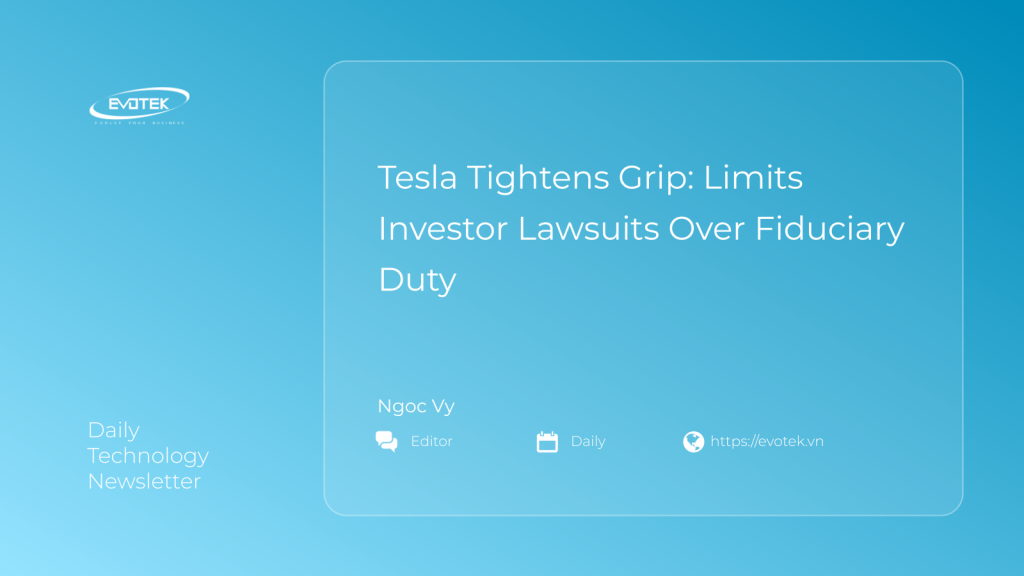Palo Alto, CA – Tesla has implemented new corporate bylaws that significantly restrict shareholders’ ability to sue the company for alleged breaches of fiduciary duty, according to a recent regulatory filing. The move raises questions about corporate governance and accountability at the Elon Musk-led automaker.
The updated bylaws, effective as of May 15, 2025, now require any individual shareholder or group of shareholders to hold at least 3% of Tesla’s outstanding common stock to initiate or maintain a derivative lawsuit. Given Tesla’s current market capitalization exceeding $1 trillion, this threshold translates to a staggering investment of over $30 billion.
This change effectively erects a substantial barrier for smaller investors seeking legal recourse against Tesla’s board or executives for potential misconduct. Legal experts suggest this strategy leverages Texas state law, where Tesla is incorporated, which allows companies to impose such ownership thresholds.
“Obviously, for a company of Tesla’s size, that would be a formidable barrier to anyone bringing a lawsuit for breach of fiduciary duty,” stated Ann Lipton, a corporate and securities law expert and Tulane Law School professor.
The new bylaw contrasts sharply with a previous legal battle when Tesla was incorporated in Delaware. A shareholder owning a mere nine shares successfully sued, leading a judge to void Elon Musk’s 2018 compensation package. This outcome fueled Musk’s decision to reincorporate Tesla in Texas in June 2024.
The Delaware court, in the Tornetta decision (named after the suing shareholder Richard Tornetta), determined that Musk exerted undue control over Tesla and that the board misled shareholders regarding his compensation. The court also found that the board acted more as an advisory body than engaging in genuine negotiation with Musk.
Tesla is currently appealing the Tornetta decision in Delaware’s state supreme court, fighting to uphold Musk’s right to the shares granted under the contested 2018 pay plan, valued at approximately $56 billion.
The implications of Tesla’s new bylaw are significant for shareholder rights and corporate accountability. It remains to be seen how this change will affect investor sentiment and the future of corporate governance within the company.

 日本語
日本語 한국어
한국어 Tiếng Việt
Tiếng Việt 简体中文
简体中文